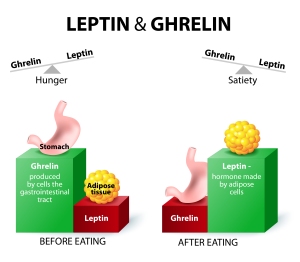Keeping pounds off after weight loss win

How common is it to put the pounds back on after losing weight?
People with a significant weight problem who are highly motivated to lose weight using diet and exercise can almost always succeeded in losing some weight during the initial months of their attempt. If, however, you check with them again five years after starting the diet, about 95% of these people will have regained most or all of weight lost during the initial period.
Can our bodies actually resist losing weight?
Normally, a person’s body has a weight “set point,” that is, a weight at which the body prefers to stay. This set point is not set for all time and can change with life circumstances, including stress and age. At any given time, a person’s body resists change in weight, either gain or loss. When a person tries consciously to lose weight against the body’s desire to maintain its weight at that set point, the body slows its metabolism, so that the person has to reduce food intake much more than one would think in order to lose the desired amount of weight. Interestingly, the same thing occurs with weight gain. When people of healthy weight try, as part of an experiment, to gain weight by eating extra food, their bodies become very inefficient at using the extra food, and most of the additional calories are burned off as waste heat.
What is “resting metabolism”?
Resting metabolism is the rate at which the body uses energy (food calories) when not engaged in physical activity, for example in bed at night. The body reduces resting metabolism and makes more efficient use of food calories when a person diets to lose weight. There is no currently known safe and effective way to increase metabolic rate to help with weight loss. Some weight loss medications increase metabolism, but they only increase it a little, and their effects tend to wear off after about one year of use. In addition, for most weight loss medications, we do not have good evidence that they can be used safely beyond the first one or two years.
Do hormones play a role in weight gain and weight loss?
There are a number of hormones that help the body communicate internally. Leptin helps body fat tissue communicate with the brain. When body fat tissue is excessive, leptin is relatively low. When body fat tissue is too low, leptin increases to tell the brain that the person needs to eat more. GLP-1 (glucagon-like peptide 1) helps the intestine communicate with the pancreas about when and how much insulin to secrete. It also communicates with the brain about feelings of hunger and fullness. When the body’s ability to regulate these and other hormones is disturbed, it can result in obesity. There are currently some medications that can help to adjust levels of GLP-1 and reduce weight, but the amount of weight loss is fairly modest. There are currently no medications that help with the leptin system or other hormone systems involved in regulating weight. Weight loss surgery has profound beneficial effects on hormone systems that help the body regulate weight.
How can weight loss surgery help?
After gastric bypass surgery, the average patient loses about 60% of his or her starting excess weight. It is then common to regain a little weight and to settle in having kept off about 50% of initial excess weight. So, if a person needs to lose 100 pounds to achieve healthiest weight, gastric bypass surgery is likely to help her or him lose about 60 pounds over the first year or 2 with a slight regain of weight after that, so that, for the long term, that person’s weight is down about 50 pounds compared with prior to surgery.
Weight loss surgery is much more successful at combating the body’s resistance to weight change than dieting. You might consider weight loss surgery if your body mass index (BMI) is over 40 or if it is over 35 and you have other weight related health problems such as diabetes, high cholesterol, high blood pressure, sleep apnea or serious arthritis in weight-bearing joints. A BMI over 40 amounts to about 100 pounds over healthy weight for men and about 80 pounds over healthy weight for women.
People who have weight loss surgery live longer, happier, healthier lives than people who meet the criteria and decide not to have weight loss surgery. People who have gastric bypass surgery are about 40% less likely to die over the next ten years than people who decide not to have surgery. Quality of life studies show that people who have had weight loss surgery are more satisfied with their lives than those who have not. Many health problems, like those listed above, go into remission or at least improve after weight loss surgery.
Weight loss surgery is, therefore, much more effective in helping seriously overweight people lose a substantial amount of weight initially and much more effective in helping people keep the weight off year after year and decade after decade.
Dr. Guilford Hartley is an internal medicine specialist and Medical Director for the Hennepin Bariatric Center. He has worked in the area of adult and adolescent obesity since 1988, focusing on finding the best solutions suited to individual patients’ needs and with emphasis on weight loss surgery for severely obese people as the safest and most effective treatment now available. For more information, go to www.hcmc.org/weightloss.

